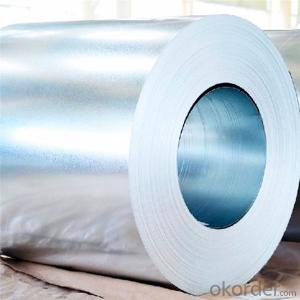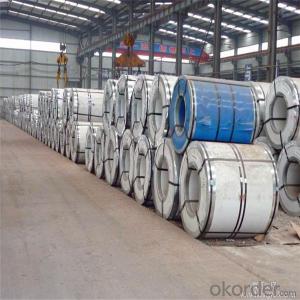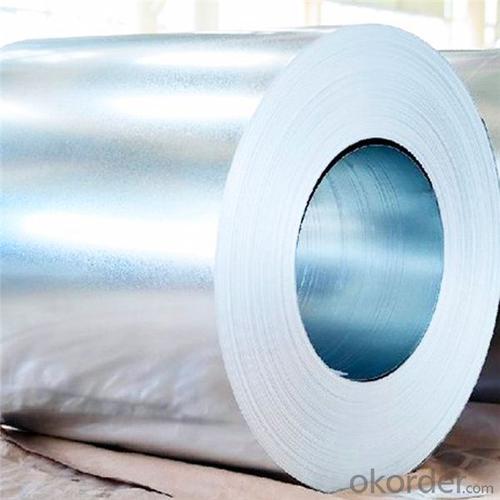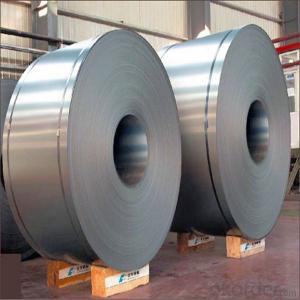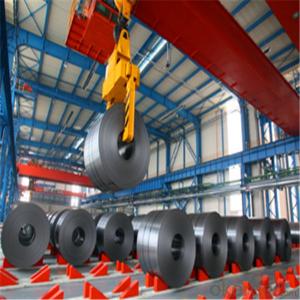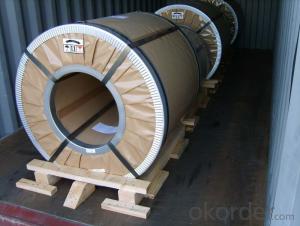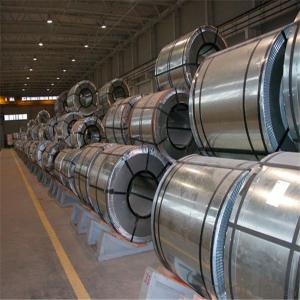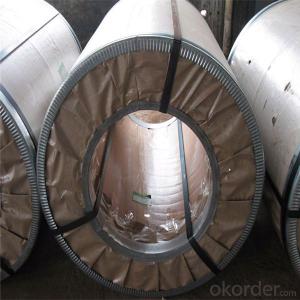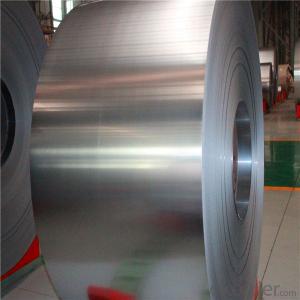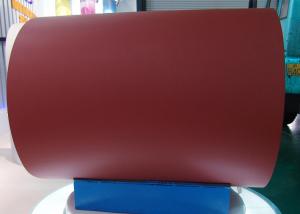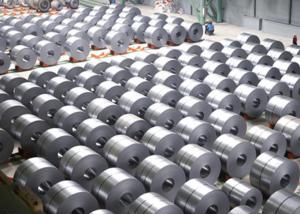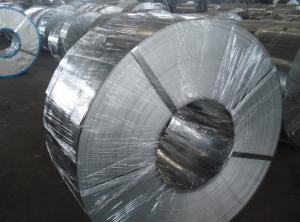SPCC Cold Rolled Steel Made in China/China Supplier
- Loading Port:
- China main port
- Payment Terms:
- TT OR LC
- Min Order Qty:
- 12 m.t.
- Supply Capability:
- 50000 m.t./month
OKorder Service Pledge
OKorder Financial Service
You Might Also Like
Specification
Prime Quality SPCC Cold Rolled Steel Sheet/Coil
Widely used to appliance,automobile industry or other decoration usage.
Certificate: ISO9001
Packing Details: Wrapped by water proof paper and plastic film.Covered with iron sheet,strapped by steel strips to protect the damage under transportation.
Details please check following format
Product Image:
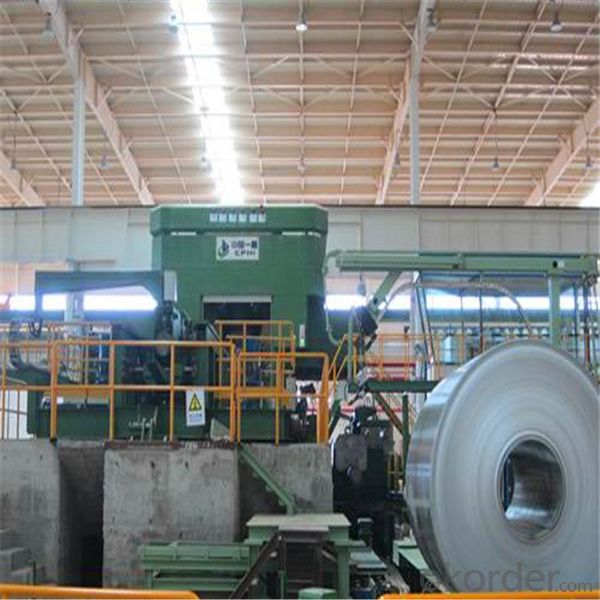
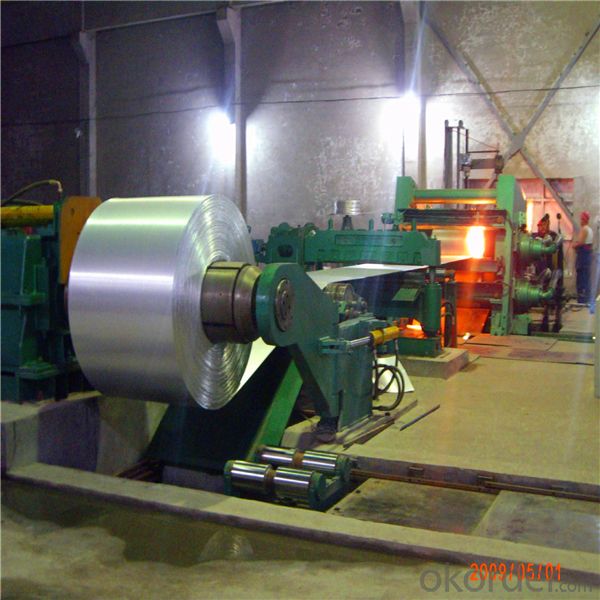
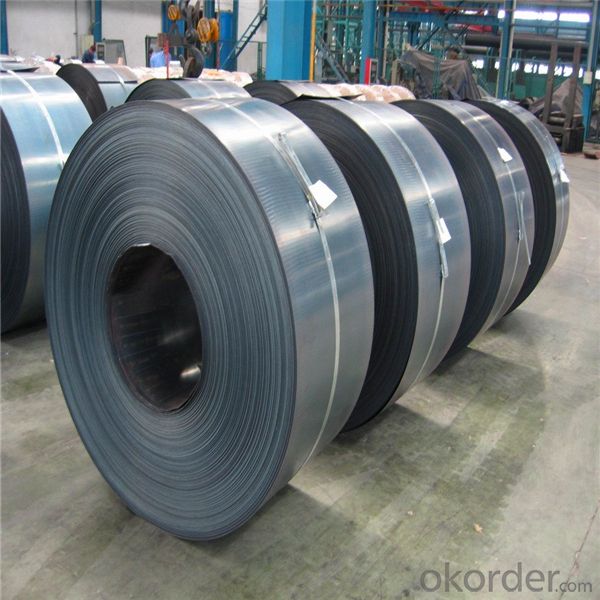
Specification
1. Thickness: 0.4-2.0mm
2. Width: 900-1250mm
3. Inner Diameter: 508mm
4. Weight of Steel Coil: 3-15MT
5. Heat Treatment: Annealed
6. Margin Status: EC & EM
7. Surface Quality: FB&FC
8. Surface Status: SB & SD
9. Surface Treatment: Oiling
FAQ
1. Q: Where is your company located? How can I visit there?
A: Our company is located in Beijing, China. Welcome to visit us.
2. Q: Can I get sample and how long will it take?
A:Yes. We can supply sample. And you need to pay for courier.
3. Q: What's the MOQ?
A: Our MOQ is 25mt.
4. Q: What's the delivery time?
A: It will take about 30 days after TT or L/C.
5. Q: What is the payment terms?
A: T/T, L/C at sight
6. Q: How does your factory carry out quality control?
A: We attach great importance to quality control.Every part of our products has its own QC.
7. Q: What certificate do you have?
A: We have SGS, ISO9001 etc.
- Q: How does steel pipe threading work?
- Steel pipe threading is a process used to create threads on the ends of steel pipes. It typically involves using a die and a threading machine to cut the desired threads onto the pipe. The die is placed on the pipe and then the machine rotates the pipe while the die cuts the threads into the surface. This creates a threaded section on the pipe that can be used to connect it with other pipes or fittings. Threading is commonly used in various industries, including plumbing and construction, to ensure tight and secure connections between steel pipes.
- Q: How is steel used in the construction of parking structures and garages?
- Steel is commonly used in the construction of parking structures and garages due to its strength, durability, and versatility. It is used for the structural framework, such as columns, beams, and trusses, providing the necessary support and stability. Steel is also used for cladding, roofing, and flooring systems, ensuring a safe and weather-resistant environment. Additionally, steel allows for flexible and efficient designs, enabling the construction of multi-level parking structures and garages with minimal space requirements.
- Q: How are steel gratings used in the construction of industrial platforms?
- Steel gratings are commonly used in the construction of industrial platforms to provide a strong and durable flooring solution. These gratings are designed to support heavy loads and provide a safe walking surface for workers. They are often used in areas where there is a need for ventilation, drainage, or visibility. Overall, steel gratings play a crucial role in enhancing the stability, safety, and functionality of industrial platforms.
- Q: How do steel products contribute to the mining and excavation industry?
- Steel products play a vital role in the mining and excavation industry by providing essential equipment and infrastructure. Steel is used to manufacture heavy machinery, such as excavators, bulldozers, and drilling rigs, which are crucial for extracting minerals and ores from the earth. Additionally, steel is used in the construction of mine shafts, tunnels, and support structures, ensuring the safety and stability of mining operations. Its durability and strength make steel products indispensable in this industry, enabling efficient and productive mining and excavation activities.
- Q: What are the common uses of stainless steel cookware?
- The common uses of stainless steel cookware include cooking a variety of foods such as meats, vegetables, and sauces. It is also suitable for boiling, simmering, frying, and sautéing. Stainless steel cookware is known for its durability, heat conductivity, and non-reactive properties, making it ideal for everyday cooking in kitchens and professional settings.
- Q: What are the different types of steel rails and their applications?
- There are several types of steel rails used in various applications. Some common ones include: 1. Heavy-duty rails: These are used in high-traffic areas like mainline tracks for passenger and freight trains. They are designed to handle heavy loads and provide stability and durability. 2. Light rails: These are used in light-duty applications such as subway systems, tramways, and light-rail transit. They are typically lighter and more flexible, allowing for easier installation and maintenance. 3. Crane rails: These rails are specifically designed for use in crane systems, providing a stable track for heavy lifting operations in industries like construction, manufacturing, and shipping yards. 4. Grooved rails: These rails have a groove along their length, allowing for the installation of a flanged wheel, commonly used in tramways, streetcars, and some light rail systems. 5. Guard rails: These are installed at the edges of railway tracks to prevent derailments and ensure the safety of trains. They are generally made from high-strength steel to withstand impact and provide protection. The choice of steel rail depends on the specific application, load requirements, and environmental factors. Each type has its own advantages and is used accordingly to ensure efficient and safe transportation.
- Q: What are the common types of steel products used in the fashion and apparel industry?
- Some common types of steel products used in the fashion and apparel industry include steel zippers, steel buttons, steel buckles, steel eyelets, and steel hooks. These steel products provide durability and a sleek aesthetic to clothing and accessories.
- Q: What are the applications of steel mesh in mining operations?
- Steel mesh has various applications in mining operations, primarily in providing safety and support. It is commonly used for roof and rib support in underground mines, preventing rock falls and stabilizing the excavation. Additionally, steel mesh is employed in the construction of screens and sieves to separate and classify different sizes of minerals.
- Q: What is the role of steel in the infrastructure development?
- Steel plays a vital role in infrastructure development as it is a versatile and durable material. It is widely used in the construction of buildings, bridges, roads, and other major infrastructure projects. Steel's high strength-to-weight ratio makes it suitable for supporting heavy loads and withstanding extreme weather conditions. Additionally, it provides flexibility in design and allows for efficient construction methods. Overall, steel is essential in ensuring the safety, stability, and longevity of infrastructure systems.
- Q: What are the safety regulations and standards for steel product manufacturing?
- The safety regulations and standards for steel product manufacturing vary depending on the country and industry. However, some common safety regulations and standards include ensuring proper ventilation and exhaust systems to control fumes and dust, providing personal protective equipment (PPE) such as helmets, gloves, and safety glasses for workers, implementing regular equipment inspections and maintenance, conducting thorough risk assessments, and training employees on safe working practices. Additionally, organizations may need to comply with specific industry standards such as ISO 9001 and ISO 45001 to ensure quality and occupational health and safety management.
Send your message to us
SPCC Cold Rolled Steel Made in China/China Supplier
- Loading Port:
- China main port
- Payment Terms:
- TT OR LC
- Min Order Qty:
- 12 m.t.
- Supply Capability:
- 50000 m.t./month
OKorder Service Pledge
OKorder Financial Service
Similar products
Hot products
Hot Searches
Related keywords
